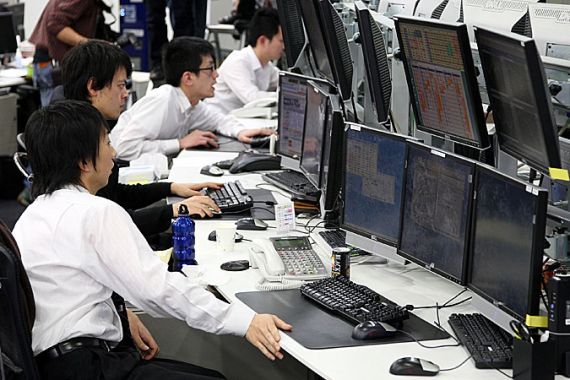Japan considers emergency budget
Prime minister Naoto Kan calls for extra budget to help “save the country” after devastating earthquake and tsunami.

Japan’s leaders are pushing for an emergency budget to counter the economic damage from a powerful earthquake and tsunami that has killed hundreds of people and caused widespread destruction.
The heads of the ruling and opposition parties agreed on the need for an extra budget after Naoto Kan, the prime minister, asked them to help “save the country”.
Keep reading
list of 4 itemsTurtles swimming to extinction in Malaysia as male hatchlings feel heat
Could shipping containers be the answer to Ghana’s housing crisis?
Thousands protest against over-tourism in Spain’s Canary Islands
However, Yoshihiko Noda, Japan’s finance minister, said on Saturday that it would be hard to compile an emergency budget before the end of March.
Noda said it would take time to estimate the cost of the damage needed to determine the size of any new budget.
The Bank of Japan (BOJ) has said it will cut short a two-day policy due to start on Monday to just one day and promised to do its utmost to ensure financial market stability.
Following Friday’s earthquake, many car plants, electronics factories and refineries were shut, roads were buckled and power to millions of homes and businesses knocked out.
Several airports, including Tokyo’s Narita, were closed and rail services halted. All ports were shut.
Until the earthquake, Japan, the world’s third-largest economy, had been showing signs of reviving from an economic contraction in the final quarter of last year.
The disaster has raised the prospect of major disruptions for business and a repair bill of billions of dollars.
‘Emergency’
Yasuo Yamamoto, a senior economist at the Mizuho Research Institute in Tokyo, said: “The government would have to sell more bonds, but this is an emergency, so this can’t be avoided.
“Given where the Bank of Japan’s benchmark interest rate is now, they can’t really lower rates. The BOJ will focus on providing liquidity, possibly by expanding market operations.”
New Zealand’s central bank slashed interest rates on Thursday after a 6.3-magnitude earthquake that wrecked Christchurch’s central business district.
The BOJ’s options are more limited, with the country’s interest rate already at just 0.1 per cent following cuts during the global financial crisis.
The government’s fiscal hands are also tied as it wrestles with the biggest public debt among industrialised countries at two times the $5 trillion economy.
“The government must act quickly to announce support packages and the central bank should pump more money into the economy,” said Tsutomu Yamada, a market analysts at Kabu.com Securities.
Sony factories
Japan’s economy looked set to return to growth in the first quarter of 2011, according to a Reuters poll earlier this week.
After the disaster, it will probably fall again before growing more strongly as a result of rebuilding work, said Chris Low, chief economist at FTN Financial in New York.
The 8.9-magnitude quake sent shares skidding in Japan.
“There are car and semiconductor factories in northern Japan, so there will be some economic impact due to damage to factories,” said Yamamoto.
Electronics giant Sony, one of the country’s biggest exporters, announced that it had shut six factories, just one of scores of major companies affected by the disaster.
Mitsuhsige Akino, a fund manager at Ichiyoshi Investment Management, said: “Stocks will probably fall Monday, especially of those companies that have factories in the affected areas, but on the whole the sell off will likely be short-lived.”
A 1995 earthquake that devastated the Japanese city of Kobe caused $100bn in damage, though industrial production and financial markets bounced back fairly quickly.